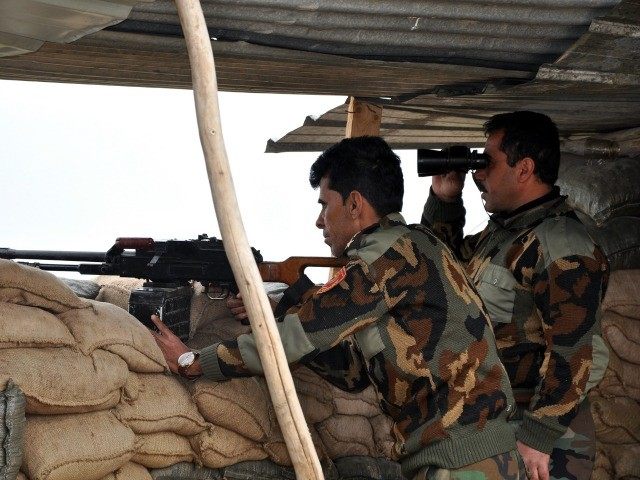Five men, who reportedly confessed to playing a role in detonating a car bomb on behalf of the Islamic State (ISIS/ISIL) outside the U.S. consulate in the capital of northern Iraq’s autonomous Kurdistan region, have been arrested by Kurdish authorities.
Quoting a statement from the region’s Security Council, Reuters reports that four of the assailants are Kurds from Kurdistan’s capital Erbil, adding that the fifth was identified as an Arab from elsewhere in Iraq.
Reuters notes that the revelation that the majority of attackers were Kurds sheds light on the threat posed by homegrown terrorists in Iraq’s Kurdistan.
“The arrests were made based on information from the public and, in some cases, family members,” said the statement. “Each member of the group has confessed about their role in the attack.”
Ahmed Jassem, the Arab arrested, told authorities that the Kurds chose the U.S. consulate as a their target “because Erbil has become the source of the decision to fight against the Islamic State.”
Reuters notes that a video of the confessions revealed that “the ringleader was a 25-year old engineering graduate named Darya Homdamin, whom the other three Kurds identified as introducing them to jihadist thought after they met through a local mosque.”
The leader contacted Kurdish militant cleric and ISIS member Mala Shwan through Facebook.
“Mala Shwan encouraged his new protege to mount attacks inside Erbil, and put him in touch with an Arab living in Kirkuk who would eventually hand over the car bomb and show them how to detonate it,” says Reuters.
Although their intended target was the U.S. consulate, they decided to leave the car across the street in front of a cafe frequented by foreigners, said the men.
The bomb was detonated by remote control on April 17, killing two Kurdish males from Turkey and wounding more than a dozen.
ISIS claimed responsibility for the attack, which took place in the predominantly Christian Ankawa district.
Kurds in northern Iraq, with the help of U.S.-led airstrikes, have been combating ISIS on the ground.
Despite driving ISIS out of certain parts in northern Iraq, Baghdad has refused to pay some members of the Kurdish security force known as Peshmerga.
The Obama administration does not provide direct assistance to the Kurds.

COMMENTS
Please let us know if you're having issues with commenting.